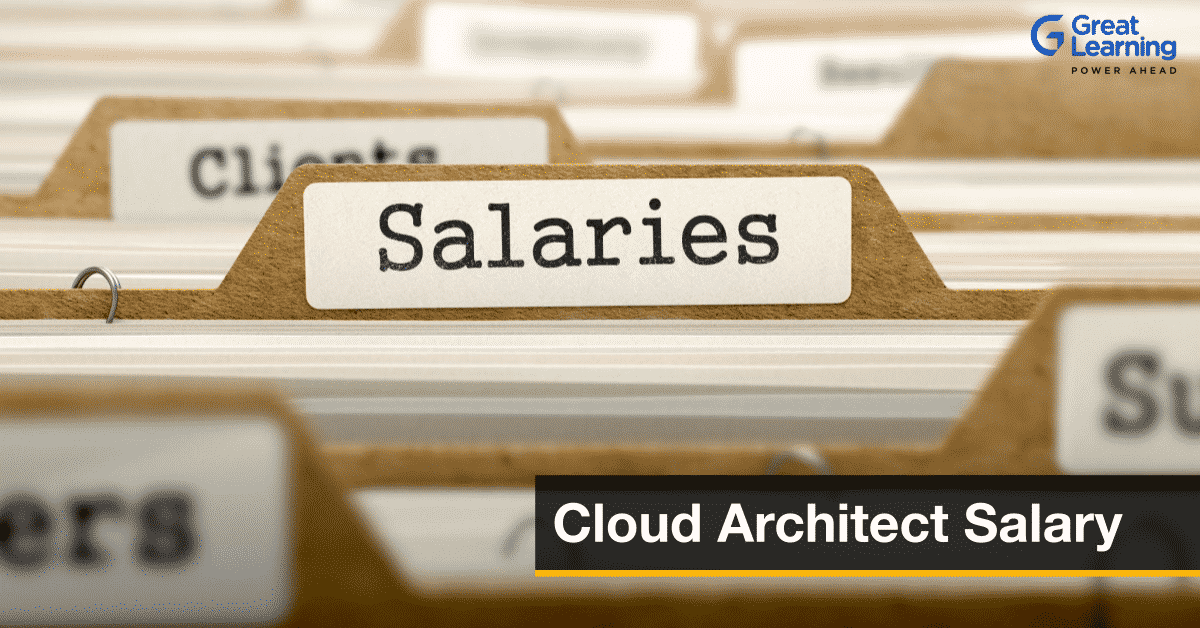A cloud computing architect is responsible for the structure of an organization’s cloud infrastructure. The architect builds the foundation on which the front-end and back-end platforms communicate with each other working in tandem with cloud-based delivery systems and the cloud network, all of which comprise cloud architecture. Since the role is critical to the functioning and success of cloud services, the role comes with a high level of responsibility, as well as reward.
Professionals usually transition to a cloud architect position after a few years of working as a cloud engineer or a software engineer, or by doing a comprehensive program in cloud computing. Here is a list of common questions they might face in their cloud architect interview.
Top 6 Cloud Architect Interview Questions
- How do you connect on-premise applications to cloud services?
- What should be the strategy for application migration to the cloud?
- What is Serverless (AWS Lambda)?
- What is the problem in Lambda (Serverless) implementation?
- What is the use of API Gateway?
- Where to use NoSQL databases as compared to traditional relational databases?
As a beginner in the field of Cloud Computing, you can take up the Cloud Foundations Free Online Course offered by Great Learning Academy. The course will help you learn the basic concepts required to kick-start your career in Cloud Computing. It covers topics such as Service Deployment Fundamentals, Cloud Fundamentals, and Scaling Fundamentals.
6 Interview Questions & Answers for Cloud Architects
1. How do you connect on-premise Applications to Cloud Services?
You can connect on-premise applications to cloud services through Hybrid integration. Traditionally, this has been done with VPNs or FTP for loading data, but they’re not very efficient for integration. You can choose a good cloud provider like AWS/Azure/Google Cloud so that you have more control over it, compared to a public cloud set up. You will then have to set up an encrypted channel so that your on-premise apps can communicate with your private cloud platform.
2. What should be the strategy for Application migration to the Cloud?
There is no single right answer for this question as there are multiple answers depending on the circumstances. Here are the different strategies:
- Re-hosting: This can be done by redeploying applications to a cloud-based hardware setup while configuring the application host accordingly. This is quick and easy while sacrificing scalability.
- Re-platforming: You can choose to run the application directly on the cloud vendor’s platform. This can be done without changing the app’s core architecture. While it has the advantage of backward compatibility, the underdeveloped PaaS infrastructure means that common capabilities are sometimes excluded.
- Repurchasing: This might come at a high cost and cause lock-in with the new vendor, but one option is to junk the old application and purchase a compatible SaaS platform.
- Refactoring: This can be a resource-intensive exercise because it involves overhauling how an application is architected. This is usually treated as a last resort when new features need to be added, or if the services need to be scaled or to improve the overall performance.
3. What is Serverless (AWS Lambda)?
AWS Lambda lets users run code without having to manage servers, so it’s called a serverless service. It executes code only when needed and scales automatically, from a few requests per day to thousands per second. This allows users to pay only for the compute time consumed – Users can run code for different application types without any administration.
4. What is the problem in Lambda (Serverless) implementation?
Vendor lock-in: When the application is hosted on a serverless platform, porting it to another platform is cumbersome due to compatibility issues in terms of supported programming languages. It also means that the user will have to cede control of their hosted application to the vendor.Long-term challenges: Since Lamba is a Function-as-a-Service, it calls multiple functions if it takes too long to execute a task, which is resource intensive and ineffective.
5. What is the use of API Gateway?
The API gateway is the entry point for an API for a group of microservices. It handles protocol translations which makes it suitable for microservices that make use of multiple APIs. They allow devs to design the application structure depending on the use case. The API gateway can be used for:
- Authentication
- Security enforcement
- Cache management
- Load Balancing
6. Where to use NoSQL databases as compared to traditional relational databases?
You should use NoSQL database if:
- Need to handle a large volume of data that is structured/unstructured
- If your business requirements make you follow development practices such as agile sprints, quick iterations, and frequent code pushes
- Prefer object-oriented programming that is easy to use and flexible
- Want to leverage efficient, scale-out architecture instead of expensive, monolithic architecture.
Conclusion
These are some common questions that are asked in interviews, but this is not an exhaustive list. Your interviewer might ask you questions that are specific to the company or the role and you need to be prepared for that too. To give yourself an advantage over others, you can choose to pursue a cloud program that offers you comprehensive and industry relevant skills.
While there are ample resources available online to help you understand the subject, there’s nothing quite like a certificate. To learn more about the domain, check out the PGP Cloud Computing Course by Great Learning. Great Learning offers mentorship-driven learning. This will help you learn from leaders in the industry. The course covers comprehensive concepts required to power ahead your cloud computing career. This will ensure that you move one step closer to your dream career.








